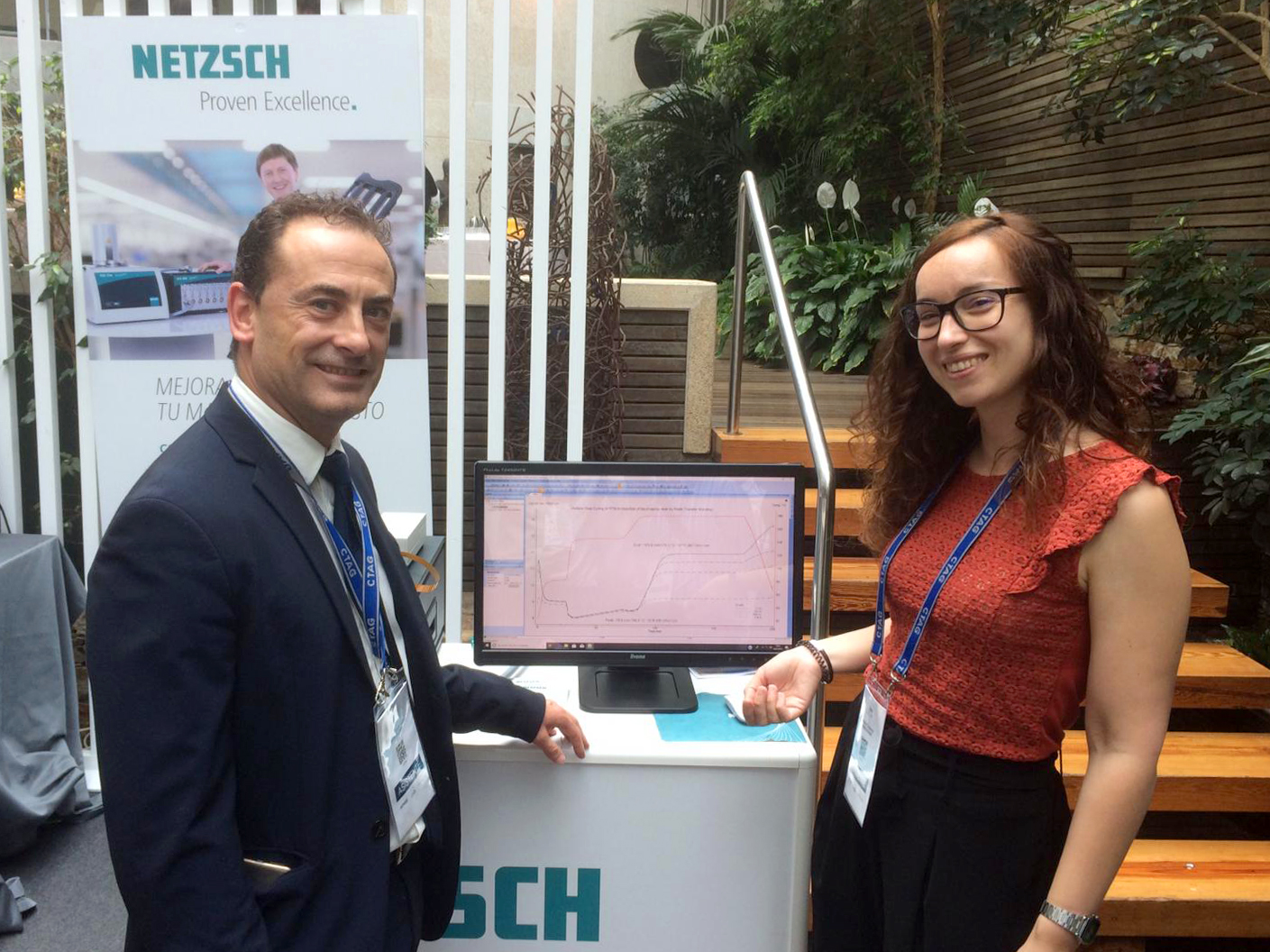Last news about IDEKO.

IK4-IDEKO has presented the results of research work on the influence that compaction has on composite material manufacturing processes at the MATCOMP Congress.
The objective pursued by the research centre through this project is to reduce production costs and seek more efficient alternatives.
The event, held in Vigo between 3 and 5 July, is considered the most important forum in the country on composite and high-performance materials.
With the aim of contributing to improving composite manufacturing processes, the Basque research centre that specialises in Advanced Manufacture, IK4-IDEKO, took part in the 13th National Composite Material Congress for Industry 4, MATCOMP, which was held between 3 and 5 July in Vigo.
At the event, the entity presented the results of a research work on the influence of compaction on the properties of polymeric composites reinforced with carbon fibre.
The research centre's Manufacturing Processes researcher, Natalia Gutiérrez, who gave a presentation on the project in the forum, says that "currently most composite manufacturing for aeronautics is based on pre-impregnated materials cured in an autoclave". According to the researcher, "reducing production costs and finding alternative solutions is of huge interest, as composite manufacture continues to be, to a great extent, a manual process, therefore, developing automation strategies has great potential".
An alternative to current autoclave systems is the manufacture of composites from dry fibre; specifically, from non-crimp fabrics (NCF).
The right resin infusion, the key to the process
Resin infusion is a commonly used process for consolidating non-crimped fabric (NCFs) preforms. These preforms are placed in a composite mould with one rigid part and the other flexible, normally a polymeric film sealed at the edge and subjected to a vacuum. When a container with resin is connected to the inside of the mould, the resin impregnates the preform due to the pressure difference.
"The properties of the composites manufactured from NCFs depend on the relationship between the fibre and the resin and on the final product porosity. Thus, for maximum process efficiency, the degree of compaction of the preform must be controlled just before the infiltration of the resin", said the expert, who has worked with the researchers Iratxe Aizpurua and Javier Vallejo in carrying out the project.
In this regard, Gutierrez says that obtaining the correct combination of properties in the composites manufactured from NCFs is key to optimising manufacturing processes in terms of time and cost.
Thus, as a result of the research carried out, the research centre has obtained results that optimise the compaction and infusion. "This study has provided significant production advantages for the lamination with the DANOBAT ADMP® technology", emphasised the researcher.
The ADMP technology, developed by the machine tool manufacturer DANOBAT, is capable of working with different widths and providing preforms with better quality, better productivity and performance together with a reduction of labour.
Nevertheless, although this research represents a significant advance in the improvement of production processes, the centre is currently tackling various challenges in the field of composites, so the manufacturing processes team will continue the work started in this research with additional studies.
The MATCOMP Congress, promoted by the Spanish Composite Material Association (AEMAC), is the most important event in the scientific, academic and business community as regards composite and high-performance materials in Spain. This year it has focused on reinforcing the impact of composite materials on Industry 4.0 and on the Circular Economy for the most strategic economic sectors, such as automotive, shipbuilding, aeronautics, renewable energies and construction, among others.